- News
- Reviews
- Bikes
- Accessories
- Accessories - misc
- Computer mounts
- Bags
- Bar ends
- Bike bags & cases
- Bottle cages
- Bottles
- Cameras
- Car racks
- Child seats
- Computers
- Glasses
- GPS units
- Helmets
- Lights - front
- Lights - rear
- Lights - sets
- Locks
- Mirrors
- Mudguards
- Racks
- Pumps & CO2 inflators
- Puncture kits
- Reflectives
- Smart watches
- Stands and racks
- Trailers
- Clothing
- Components
- Bar tape & grips
- Bottom brackets
- Brake & gear cables
- Brake & STI levers
- Brake pads & spares
- Brakes
- Cassettes & freewheels
- Chains
- Chainsets & chainrings
- Derailleurs - front
- Derailleurs - rear
- Forks
- Gear levers & shifters
- Groupsets
- Handlebars & extensions
- Headsets
- Hubs
- Inner tubes
- Pedals
- Quick releases & skewers
- Saddles
- Seatposts
- Stems
- Wheels
- Tyres
- Health, fitness and nutrition
- Tools and workshop
- Miscellaneous
- Buyers Guides
- Features
- Forum
- Recommends
- Podcast
review
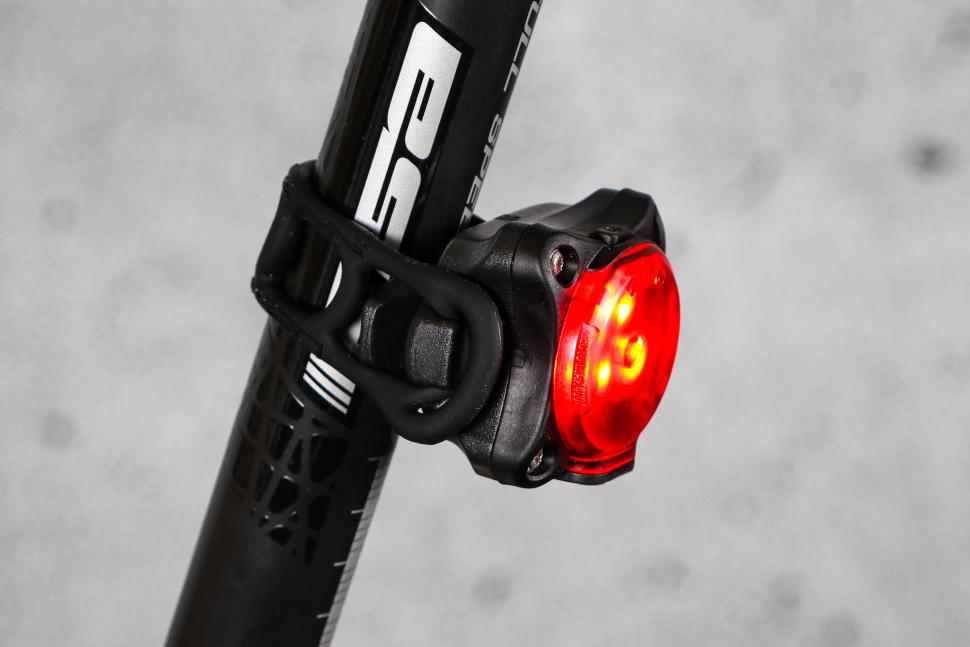 2023 Lezyne Zecto Drive Max 400+ LED Rear Light - 1.jpg
2023 Lezyne Zecto Drive Max 400+ LED Rear Light - 1.jpg£52.00
VERDICT:
Big, red, rugged and explosively bright, and lasts well too – shame about the awkward switch
Very rugged build
Very bright
Battery lasts well
Battery indicator improved...
...but it's still pretty bad
Button is hard to press
Bulky design
Weight:
65g
Contact:
At road.cc every product is thoroughly tested for as long as it takes to get a proper insight into how well it works. Our reviewers are experienced cyclists that we trust to be objective. While we strive to ensure that opinions expressed are backed up by facts, reviews are by their nature an informed opinion, not a definitive verdict. We don't intentionally try to break anything (except locks) but we do try to look for weak points in any design. The overall score is not just an average of the other scores: it reflects both a product's function and value – with value determined by how a product compares with items of similar spec, quality, and price.
What the road.cc scores meanGood scores are more common than bad, because fortunately good products are more common than bad.
- Exceptional
- Excellent
- Very Good
- Good
- Quite good
- Average
- Not so good
- Poor
- Bad
- Appalling
The Lezyne Zecto Drive Max 400+ is an ideal rear light for just about any kind of riding. It's big but not too heavy, very bright, and offers really useable run-times. It feels seriously rugged too, and will happily take commuting, off-road use and being thrown around in bags. The physically awkward button and so-so battery indicator are the only real flies in the ointment.
Check out our guide to the best rear bike lights for more options.
The Zecto design hasn't changed much over the years, and that's no bad thing – I've previously reviewed the Lezyne Zecto Drive 250 and the Zecto Drive Max 250, plus I own one that's even older still. All three still work just the same as the day they arrived.
If you're wondering what the 'Max' part means, it denotes a thicker rear case and a larger battery than normal. The battery in this light is a fairly beefy 1,300mAh.
While the unusual square-ish shape doesn't work well in front light form – not among the cables of narrow drop bars, anyway –it's great for seatposts. It neatly hosts a big circular lens that's quite noticeable against a sea of angular lamps.
Lezyne has dropped the old separate bezel. The lens still protrudes to a similar height, but it's now just all one very nicely formed, subtly wavy-fronted thing. Side vision is much improved (previously it relied on windows behind the bezel), while the rippled rather than flat front is presumably shaped that way to focus light. It's certainly very bright and noticeable.
The overall build remains impressively tough. The plastics lack any sense of fragility and even the lens feels remarkably thick and tough. There's an integrated clip on the back for hanging the Zecto from loops, and the simple and strong ladder strap is captive at one end. There's no worry about losing it, or of rain killing the lamp – it's rated to an impressive IPX7.
You can get smaller, lighter and slimmer lights, but if it's rugged survivability and reliable performance you value, this is great.
Modes & run-times
When I reviewed the 250-lumen rear Zecto I already thought that was a little excessive, so I can't say 400 lumens seems necessarily a good idea either – at least not in the dark. For the very busiest city environments it may well be ideal, especially on a wet winter's night, but for more normal conditions it's pretty blinding.
To be clear, Lezyne calls this mode Day Flash, and it's a good idea to keep it just for that. It'll be visible on the brightest of sunny days (that's an educated guess; I haven't seen a sunny day in what feels like years), and with its 16-hour run-time you won't need to charge it every ride. Pretty convenient. To be yet more clear still, none of the remaining five modes put out more than 80 lumens, which is far more appropriate.
The shortest claimed run-time is 3hrs 45mins, in the solidly lit and still impressively bright 80-lumen Blast mode, and I found that claim pretty accurate. Better still, at that point it automatically steps down to a lower-powered flash that lasts well over an hour, so you won't get left unlit. It's still more than useful for commuting or training runs, but I didn't find it the most eye-catching; for me the Flash 1 setting was the place to be (yeah, baby), even though it only winks at 50 lumens. The 13hr run-time is particularly useful, too.
The all-important battery indicator has improved, though only from stupidly confusing to merely weird with a potential for melting your eyes. Quite why Lezyne keeps overcomplicating these indicators, I don't know.
Instead of the old system, which involved recognising multiple numbers AND colours of lights (colours which were badly distorted by the red lens), this now uses a simpler on/off code with two LEDs... alongside colours badly distorted by the red lens. At least you can just ignore the latter – which is lucky, as what the manual says is green is red, and what's supposedly red is amber – and just note the positions: left LED only is 75% minimum battery, left and right together means 75-25%, and right only is under 25%.
The instructions say these lamps are on the sides and can be used while the Zecto is on, but if that's true I can't see them. From the side this is just red all the way around, and good luck gazing directly into a 400-lumen flash – or even an 80-lumen Blast – to make out the LEDs in the face.
The only way I can see the indicators is to turn the light off, then do a short double-press of the button (the manual says press once, but it seems to need twice).
Recharging from flat took me around three hours at 2A from a wall charger, which is considerably better than the four to six hours claim. Either those figures were measured at lower currents (Lezyne doesn't say, or recommend a limit), or the words in the manual – seemingly across much of the manual – have not been updated anything like as successfully as the pictures. The manual is accessed from the product page online, which in turn can be accessed via a QR code on the packaging.
Press 1 for discomfort
The apparent need to cram everything into the slim front section (presumably to allow different rear sections to bolt straight on) causes another issue. Both the switch and the charging port are only half on the body and half overlapping the lens, and while that's fine for the port, it seems to leave little room for a decent switch.
The switch was never that big, and now that it has an even lower profile and is flat instead of domed, it's pretty hard to press, especially in gloves. It takes an excessive amount of pressure (fully 5kg of force by my measurement), and I have to dig my thumbnail in to reliably operate it.
Now the Zecto's battery indicator is at least useable, if not very good, the recalcitrant switch is the (sole) thing I dislike about it.
Value
At £52 this is more expensive than a host of very good lights, but it does offer extra – the fantastically tough build, extremely bright Day Flash and usefully long run-times being the main benefits.
I still like (and use) the Cateye Viz 300 that I tested back in 2021, as while it's not as powerful it's still very bright at 300 lumens, all-round visibility is excellent, and it's still £39.99. If you simply crave power there's a 450-lumen version for £49.99 (also tested in 2021).
If you're not so fussed about Big Bang-level flashes, you can easily save money and match (or exceed) the Zecto's other modes. For instance, the Gaciron Loop-100 Smart Brake Bike Tail light that Emily reviewed in December is only £22.64 (and has a brake light function), and the Magicshine Seemee 100 (which we reviewed in 2020) is £29.99.
That's not to say the Zecto is overpriced for what it is; it has plenty of rivals that cost the same or more, and it feels like good value for its build quality and performance.
Overall
The latest Zecto is bright, extremely rugged and lasts well – it's a very reliable unit. Though you'll rarely need the brightest flash in reality, the other modes are great, and long run-times make it really useable. The awkward battery indicator and hard-to-press switch are irritations, but they're only fleeting ones in use and won't be deal-killers for many.
Verdict
Big, red, rugged and explosively bright, and lasts well too – shame about the awkward switch
If you're thinking of buying this product using a cashback deal why not use the road.cc Top Cashback page and get some top cashback while helping to support your favourite independent cycling website
road.cc test report
Make and model: Lezyne Zecto Drive Max 400+ LED Rear Light
Size tested: 400 Lumens
Tell us what the light is for, and who it's aimed at. What do the manufacturers say about it? How does that compare to your own feelings about it?
Lezyne says: "The Zecto Drive Max 400+ Rear is a high-visibility light that boasts an incredible 400 lumens of brightness. Its six combined solid and flash output modes offer versatile options for any situation. Its highly disruptive Daytime Flash mode ensures maximum visibility during daylight hours, and the intelligent Power Indicator displays battery runtime and increases side visibility. The light is fitted with a patented 2-in-1 clip and strap mounting system, allowing easy attachment to handlebars or loops.
"It is rigorously tested to IPX7 Waterproofing standards to withstand even the harshest weather conditions. With a 1300 mAh battery capacity, the Zecto Drive Max 400+ Rear offers a maximum runtime of up to 70 hours in Femto mode. It also boasts waterproof USB-C charging(cable not included), making it easy to keep it charged and ready to go."
Tell us some more about the technical aspects of the light?
Lezyne lists:
Max Lumens: 400
Max Runtime: 70 hours
Battery Capacity (mAh): 1300
Recharge Type: USB-C
Weight: 68g
Dimensions: 43mm, 45mm, 38mm
Features: IPX7, Daytime Flash
Rate the light for quality of construction:
9/10
Rate the light for design and ease of use. How simple was the light to use?
7/10
Simple in principle, but the small, stiff button is hard work.
Rate the light for the design and usability of the clamping system/s
8/10
Rate the light for waterproofing. How did it stand up to the elements?
8/10
IPX7 is good – you don't need to worry about it unless you fall in a canal.
Rate the light for battery life. How long did it last? How long did it take to recharge?
8/10
Rate the light for performance:
8/10
Rate the light for durability:
9/10
Rate the light for weight:
7/10
Rate the light for value:
5/10
Tell us how the light performed overall when used for its designed purpose
It's big, bright and reliable. Shame the button is so awkward.
Tell us what you particularly liked about the light
Big lens, great run-time in full power, bright, reassuringly solid and easy to attach.
Tell us what you particularly disliked about the light
Small, stiff and low-profile button takes a lot of force to use.
How does the price compare to that of similar products in the market, including ones recently tested on road.cc?
At £52 this is more expensive than a host of very good lights, but it does offer extra – the fantastically tough build, extremely bright Day Flash and usefully long run-times being the main benefits.
Did you enjoy using the light? Button aside, yes.
Would you consider buying the light? Yes
Would you recommend the light to a friend? Yes
Use this box to explain your overall score
Unless you're looking for the lightest and sleekest design, this is ideal. It's big, bright, rugged and easily attached to bikes or bags. It also lasts an impressively long time in its headline mode. A bigger, taller and less-stiffly-sprung button would help this to a higher score instantly, though – this is tough to use, especially in gloves or with cold fingers.
About the tester
Age: 48
I usually ride: Vitus Zenium SL VR Disc My best bike is:
I've been riding for: 10-20 years I ride: A few times a week I would class myself as: Experienced
I regularly do the following types of riding: general fitness riding, mtb,
Latest Comments
- Kendalred 2 min 8 sec ago
I saw this in a local multi-storey car park recently - had to take a photo...
- Exup 1 hour 10 min ago
At least some justice is being done........
- BIRMINGHAMisaDUMP 1 hour 20 min ago
I imagine the Police treat bike theft as an insurance issue rather than a criminal issue. Can't blame them to be honest. The best thing is to use...
- David9694 1 hour 47 min ago
Police launch investigation into destruction of barber shop in Hythe High Street...
- Browsie 3 hours 46 min ago
I've suspected for some time that you are a complete and utter twat , now my suspicions.have finally been confirmed, many thanks!
- barbarus 9 hours 49 min ago
I live right in the centre of this. It's really heartening to read that there are people in favour....
- ktache 10 hours 17 min ago
I'd love for them to put a number on that "inappropriate speed"
- Nick T 11 hours 9 min ago
They need to use some harder material for the cleat retention clip really, that's worn out long before any bearing has had a chance to fail on...
- yiipeeia 14 hours 10 sec ago
I am 67 and I cycle with two groups during the year The Haddenham Easyriders International who ride during the summer on Thursday evenings, and The...
- don simon fbpe 14 hours 10 min ago
Brexit is a wholly selfish act....





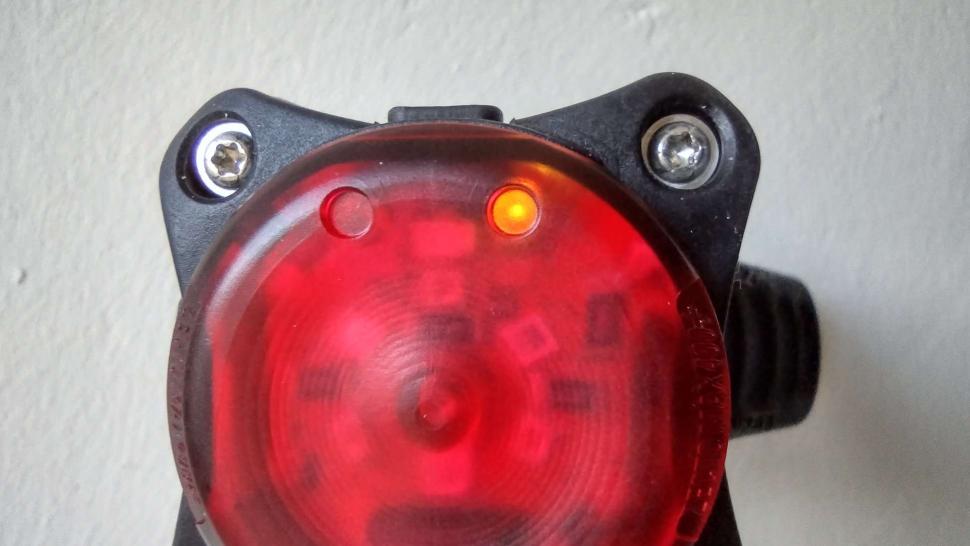
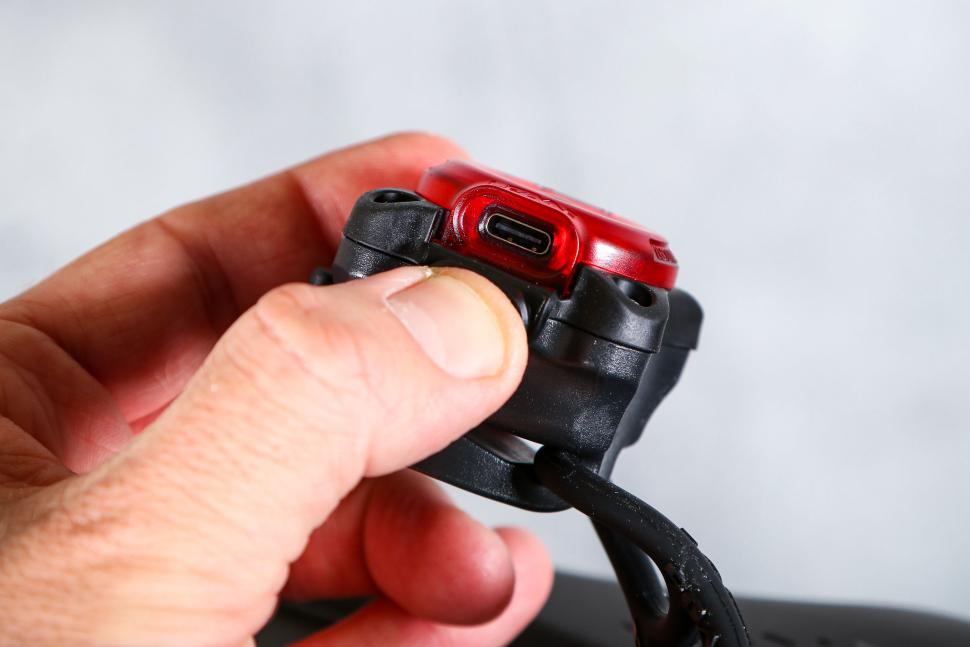


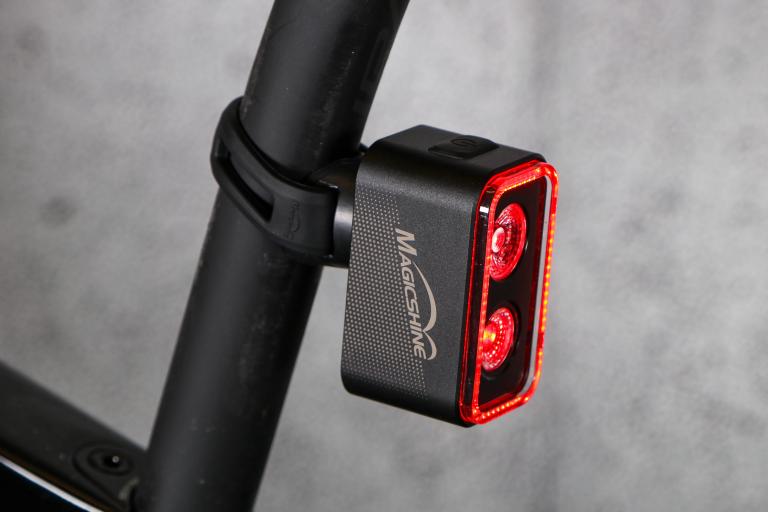
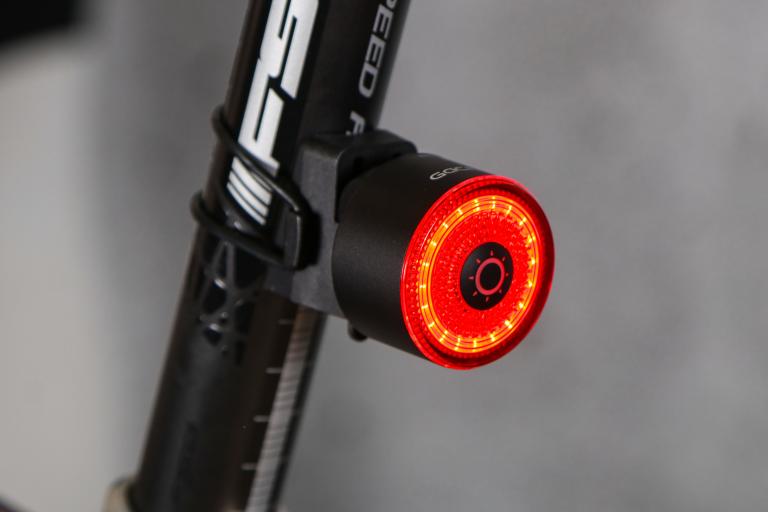
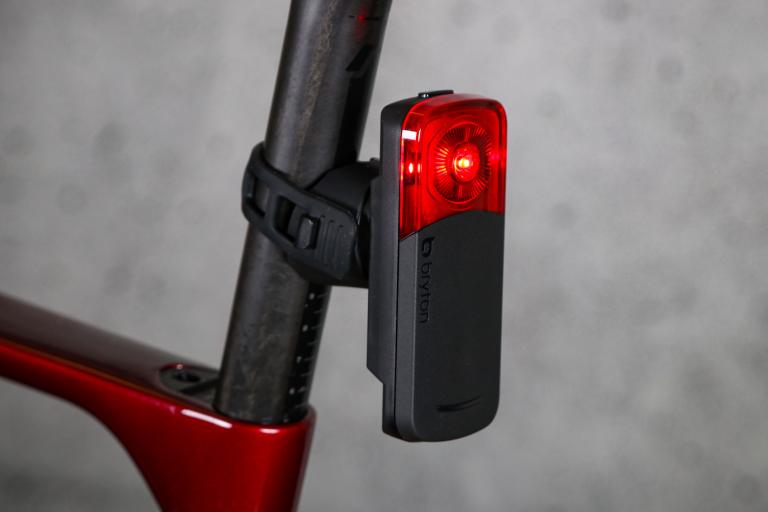
Add new comment
2 comments
When it comes to lumens and brightness the inverse square law applies so that any lumen figure needs to be multiplied by four to see double the light output. This is becuse the perception of luminance is logarithmic not linear.
So for example a light of 250 lumen would have to be 1000 lumen for it to be theoretically percieved as twice as bright.
Of course things are not quite as simple in the real world because when comparing different lights the figures quoted are not usually offered with a reference of how they were measured and you have to take into account the lens design and the type and shape of the 'beam' given out etc.
To put it simply, I would suggest not to be taken in purely by lumen figures when chosing a light, better off looking at others lights around you on other bikes and if you see one that stands out ask the rider what it is and put on your short list before you decide.
Saying that, one the locals has the 'old' version of this light and it is very effective but not as bright ( to my eyes at least) as my old Magicshine MJ-818 which is 'only' rated at 85 lumens.
Theres also a gazillion knockoffs of this design available online for silly money that seem to do a decent job... Mine came from PlanetX.